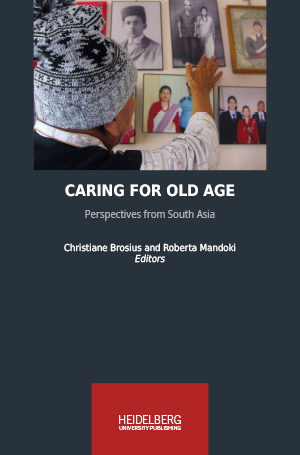Zitationsvorschlag
Lizenz (Kapitel)

Dieses Werk steht unter der Lizenz Creative Commons Namensnennung - Weitergabe unter gleichen Bedingungen 4.0 International.
Identifier (Buch)
Veröffentlicht
Caring in / for Place: Old Age in Urban Nepal
Abstract This chapter explores ways to consider, and possibly rethink, elderly people’s positions and forms of participation in urban life in the so-called “Global South,” in this case in Nepal’s Kathmandu Valley. A key question here is how personal relations and experiences of ageing and belonging in a rapidly and widely changing metropolitan region can be addressed and captured. Building upon discussions that evolve around concepts such as “active ageing,” “ageing in place” and “age-friendly cities,” but also around notions such as “public” and “private,” terms largely coined in North America and western Europe, the chapter addresses their productivity—and challenges—when applied in the case of Nepal. It considers a larger field of ageing in the realm of transcultural place-making, since the contextualization includes global circulations of ideas and practices related to cultural heritage, transnational migration and urban transformation through economic liberalization. The ethnographic material collected between 2014–2016 among senior Newar residents is discussed with respect to questions of ownership, participation, and responsibility. It highlights the entangled relationship of socio-religious relations and built environment, as well as intangible heritage, seeking to stress the importance of ephemeral and interstitial spaces that do not necessarily resonate with ‘global’ concepts of public and private, wellbeing, and development. This way, urban transformation as well as “ageing in place” can be considered as relational.
Keywords age-friendly cities, urban regeneration, elderscapes, cultural heritage, environmental gerontology






